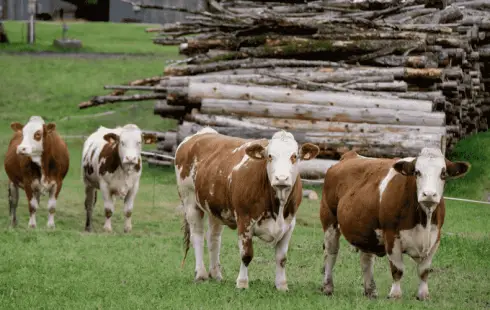
Oktoberfest in the news: How people around see beer's birthday
Section: Arts
 The US Centers for Disease Control and Prevention (CDC) have flagged a potential instance of H5N1 avian flu transmission from cows to humans in Texas. The affected individual, who had prior contact with cows, exhibited symptoms of conjunctivitis. Suspicions linger that the cows were carriers of the H5N1 virus. The patient has been instructed to self-isolate and is currently recuperating.
The US Centers for Disease Control and Prevention (CDC) have flagged a potential instance of H5N1 avian flu transmission from cows to humans in Texas. The affected individual, who had prior contact with cows, exhibited symptoms of conjunctivitis. Suspicions linger that the cows were carriers of the H5N1 virus. The patient has been instructed to self-isolate and is currently recuperating.
This marks the second documented case of H5N1 transmission to humans in the United States, as per the CDC. The initial case surfaced in Colorado in 2022, involving an individual engaged in the culling of infected poultry. The primary complaint in that instance was fatigue. The CDC's records indicate minimal worldwide infections thus far. Symptoms vary from mild, such as conjunctivitis, to severe, including pneumonia, with fatalities reported in various countries.
Avian Influenza: Rising Incidence in Cattle in the USA
According to Spektrum.de, there have been 13 confirmed cases of humans contracting the H5N1 virus lineage 2.3.4.4b in Texas, with three fatalities recorded. Though this figure appears low compared to the widespread avian epidemics affecting wild birds, sporadic infections in mammals, primarily carnivores, have been noted.
Recent reports from the US news portal Science highlight cases of H5N1-infected cows in the states of Texas, Kansas, and New Mexico. Older animals, in particular, have shown susceptibility. Notably, in Texas and Kansas, the bird flu virus was detected in unpasteurized cow's milk. However, the US Department of Agriculture assures that pasteurization effectively eliminates the virus from milk. Nonetheless, questions arise regarding the potential adaptation of the virus for inter-cow and even cow-to-human transmission. The exact mode of cattle infection remains elusive.
In Germany, an avian flu outbreak occurred at Cologne Zoo, leading to the continued closure of the "Arnulf and Elizabeth Reichert House" within the zoo premises. Both the CDC and the Robert Koch Institute advocate preventive measures against avian flu, including avoiding contact with sick or deceased birds and animals, as well as refraining from consuming raw or undercooked foods sourced from infected animals.
Need for Reassessment of Avian Flu Risk?
Despite these developments, the CDC does not intend to revise its risk assessment for H5N1 transmission to humans, deeming the health risk relatively low. However, individuals with prolonged or close proximity to infected birds or animals may face slightly elevated risks. The emergence of the virus in domesticated animals raises concerns due to the heightened interaction between humans and farm animals compared to wild birds. Any evolution in the virus may necessitate a reevaluation of the risk landscape.
The Robert Koch Institute's latest update on November 6, 2023, stated: "There is currently no documented evidence of sustained human-to-human transmission of avian influenza viruses worldwide." According to the RKI, there were 2,600 reported cases of human infection globally, resulting in 1,100 fatalities across all avian influenza strains.
A recent incident in January saw an avian flu outbreak on a farm in Dillingen, Bavaria, necessitating the culling of 20,000 animals.

Section: Arts

Section: Business

Section: Business

Section: Arts

Section: Health

Section: Arts

Section: News

Section: News

Section: Arts

Section: Business
Health Insurance in Germany is compulsory and sometimes complicated, not to mention expensive. As an expat, you are required to navigate this landscape within weeks of arriving, so check our FAQ on PKV. For our guide on resources and access to agents who can give you a competitive quote, try our PKV Cost comparison tool.
Germany is famous for its medical expertise and extensive number of hospitals and clinics. See this comprehensive directory of hospitals and clinics across the country, complete with links to their websites, addresses, contact info, and specializations/services.
One of the most beautiful squares transforms into a summer stage every year for two days. The Gärtnerplatz Open-Air features a free music and cultural program across three stages, as well as street food from local vendors. On Saturday, the main stage at Gärtnerplatz offers something for everyone,...



No comments yet. Be the first to comment!